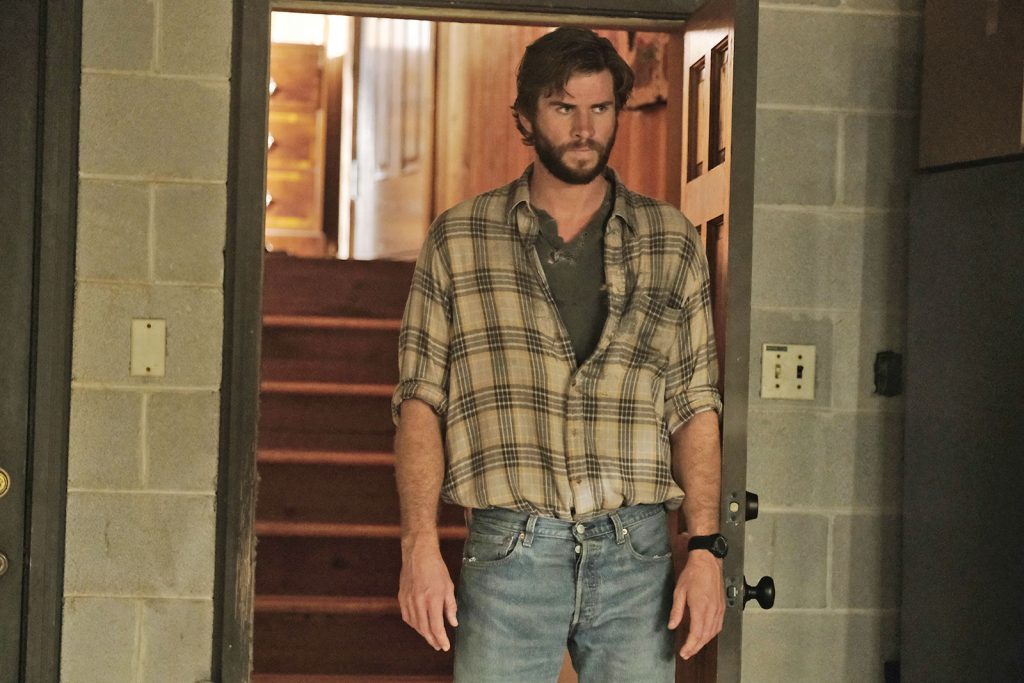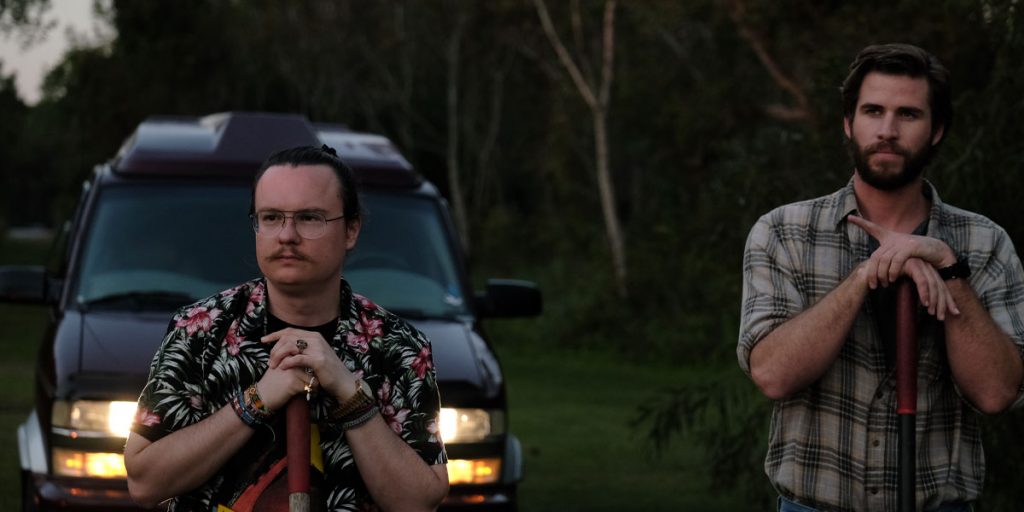Arkansas is a muddled crime saga that flounders on the shoulders of its miscast leading man.
Let’s talk about Liam Hemsworth. Liam is the youngest of the Australian Hemsworth brothers. Older brother Chris, the most famous of the family, is best known for his work in the Marvel Cinematic Universe in the Thor and Avengers franchises. Eldest brother Luke has cut a career as a solid character actor (best known for HBO’s Westworld). Liam has seen his career ebb between supporting roles in big studio blockbusters (The Hunger Games franchise) and lead roles in Hollywood flops (Independence Day: Resurgence, Paranoia), between broad comedy (Isn’t It Romantic?), mainstream romance (The Last Song) and streaming platform launch events (Quibi’s The Most Dangerous Game). He seems most drawn to modest size crime dramedies – Arkansas, Cut Bank, Killerman among them.
But still, there remains an elephant in the room… Despite all these different genres, Liam Hemsworth has never once been the most compelling presence in a project. So how does he keep getting leading and significant roles? He is not a bad actor per se. He is certainly famous (and tabloid infamous). Yet, I think the simpler answer is that Hemsworth is a very handsome fellow. It is simply easier to get these roles when you are blessed with Hemsworth’s looks. A lot of actors need to dabble in different genres before finding the right fit for their talents – it took years for Chris and Luke to find their lanes. I cannot help but worry that Liam Hemsworth has already tried an awful lot of lanes, and none of them seems to have elevated his work.
Take Arkansas, for example. Here we have a film peppered with excellent character actors like John Malkovich (Being John Malkovich) and Michael Kenneth Williams (HBO’s The Wire). Whenever Hemsworth is on screen, the film just tends to drag. Arkansas’ episodic structure (it is structured in “chapters” over multiple timelines) serves to exacerbate the problem. The first chapter is led by Hemworth; the second is not. It should not surprise you that the second chapter is far more compelling than the first. This pattern continues through the film. Hemsworth serves as sort of a Southern Fried Male Mary Sue – an audience proxy as more interesting, complex characters surround him.

He is never actively bad, but he never elevates his scenes. He seems eaten alive by ill-conceived narration that aims for Coen Brothers’ black humor but feels like a pale imitation. His accent work is simply not credible and I could not help but wonder what a better actor might have brought to this role. Timothy Olyphant (FX’s Justified) might have elevated the arch dialogue. Lucas Hedges (Manchester by the Sea) might have contributed a sense of internal turmoil. Taylor Kitsch (NBC’s Friday Night Lights) might have conveyed some confident swagger. Hemsworth reads the lines. These are not bigger names or more expensive actors than Hemsworth, but each would have brought something better to the table.
It is difficult to write about a film that seems to disappear from your brain as the movie unspools before you. Burdened with a lackadaisical pace and a muddled structure, Arkansas moseys along with dual timelines that serve only to soften the viewer’s connection to from both narratives. One thread of the film tells the story of two low level ne’er-do-wells (Hemsworth and Hot Tub Time Machine’s Clark Duke) who become embroiled in the Southern drug trade; the other drops back in time to the 80s to see the steady ascension of a future drug lord played with adequate swagger and menace by Vince Vaughn (Freaky, The Binge). As is necessary in this sort of piece, these plots intersect.
Clark Duke is not without talent as a writer/director, but this project feels too much like a fanboy homage to the Coens and Quentin Tarantino. I appreciate his willingness to try to nail a tricky tone balanced between humor and drama, and he also does a good job of establishing a sense of place. Born and raised in the state, Duke’s Arkansas is steeped in specific little details that help build a credible world. Yet, I would like to see more from Duke’s own mind, and less of his affection for the modern masters, in the future.

